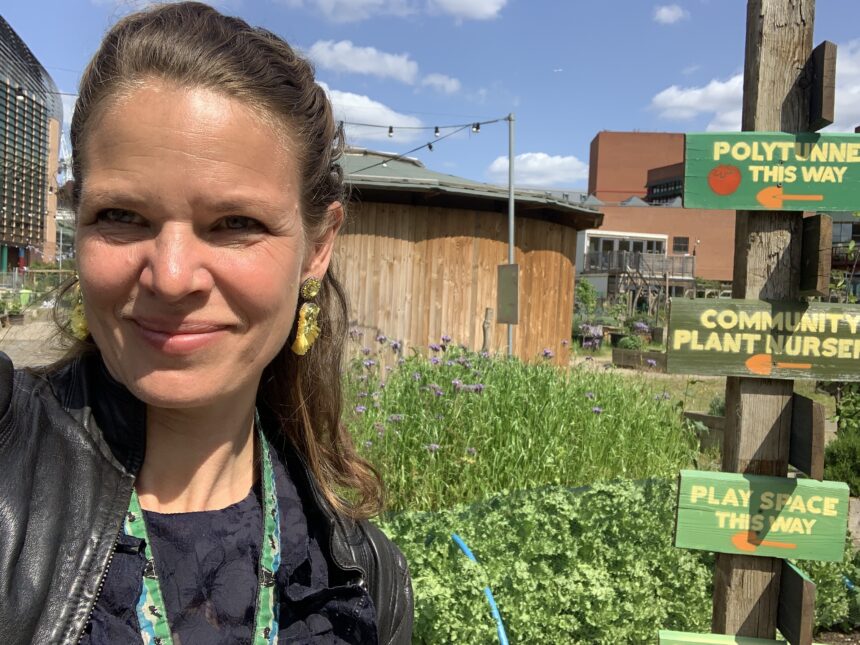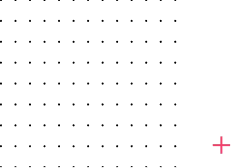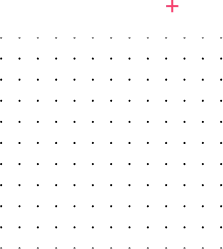Impact Innovators in the Zinc Ecosystem: Anna Sandgren, Unibloom

Anna Sandgren is co-founder and CEO of Unibloom, an early stage startup in the Zinc portfolio on a mission to supercharge sustainability teams with its climate scenario planning and analytics software. Anna and her co-founder Vineet Ahuja met on Zinc’s fifth Venture Builder, focused on transforming the industries that have the most damaging impact on the environment.
What did your career path look like prior to joining Zinc?
I grew up in Sweden, surrounded by nature and in a very entrepreneurial family. I now live in London with my husband – who is also an entrepreneur – and our two kids. Career-wise, I’m on a mission to keep learning and evolving and have reinvented myself at least three or four times. I describe myself as a mechanical engineer who is passionate about business. I first joined a startup at 16 and it was so inspiring to be part of its journey to IPO. I always knew that’s the path I wanted to follow one day. I’ve worked in many sectors over the years: finance, venture capital, automotive, gold exploration and FMCG. I spent over a decade working for various brands at Unilever, most recently with Ben & Jerry’s where I led Nordic and global growth from zero to 200 million in e-commerce, and also led impact initiatives including LGBT rights, Fairtrade farmers and supporting refugees.
What motivated you to start your entrepreneurial journey with Zinc?
I had always known I would eventually start my own thing, and more recently it had become clear to me that I wanted to build something in the climate space. Over the years I had seen first hand that many corporations had the intention to do a better job when it comes to climate and their impact, but it was frustrating to see just how little meaningful action was actually being taken. I began thinking about how I personally could have the biggest impact and came across Zinc’s Venture Builder. I was already considering a course at Cambridge University’s Institute for Sustainable Leadership, so for me it was a decision to either pay thousands of pounds in fees to do a theoretical course – or jump right into the Zinc platform and start building. I really wanted full immersion, so I jumped right in!
What excited you about the Zinc Venture Builder?
Before I joined, it was definitely the mission-driven focus on climate that excited me. But as soon as I arrived, it became all about the people and the community, being around people who are passionate and ambitious in the same way I am. Zinc has amazing connections in academia and industry and the Venture Builder platform was tried and tested by the cohorts that came before us.
How have you used the Zinc network of fellows, advisors, experts and coaches?
When you walk through the door at Zinc on day one you’re on your own, then suddenly you’re part of this incredible community. The Zinc Fellows were a really important part of Unibloom’s journey early on, giving us feedback that helped us to refine our hypothesis, mission and product thinking. We used the Zinc network to build our first advisory board, and three of those advisors now have a much more formalised role with us and have formed a really important part of our journey. It has also been incredibly powerful being part of the network of founders. We’re all there to support each other, answer questions and offer advice. There’s a shared understanding that comes with being in the same phase of the rollercoaster of solving big problems in similar spaces.
What has surprised you most on your founder journey so far?
The thing that surprised me the most early on was how the co-founder matching process felt a bit like being on Tinder. Some people really flourished with fast-paced, numbers game match-making, and others stepped back and were much more deliberate in who they approached to work with. I think you have to take the platform and adapt it to work in a way that is best for you and what you want from it. I knew really early on I wanted to work with a technical co-founder who has a business mindset, so I was laser focused on that. I have also been a bit surprised by how quickly the venture builder shifts gears, from boot camp, to co-founder matching and problem exploration, to incorporating a company and onboarding our first customers. The time really does fly by.
Did this path feel risky to you? If so, how did you manage that risk?
I follow my heart and feel like I’ve always been a bit of a risk taker. I’ve never been drawn to taking an easy or predictable path, I want more challenges and to grow as a person, and taking risks helps me to do that. I guess the biggest risk in joining Zinc is that I have a partner, two kids and home to consider, it’s not just me. But this is a path I always knew I’d follow eventually and we’re figuring out as a family how to get the balance right.
How do you look after your mental and physical well being?
I try to do some exercise every day, either running or yoga or swimming, and I also try to play tennis often. Time in nature really helps me to recover. And I try to eat as healthily as possible. A focus on wellbeing is so important on this journey, it’s an ultra marathon, not a sprint. As we’re building the team at Unibloom, one of our core values is prioritising all employees being able to look after their physical and emotional health in the ways that work best for them.
What are you most proud of on this journey so far?
So much! We have onboarded three significant customers, we have our MVP out there and being used and we’re getting lots of valuable results and data coming in. I looked at the numbers today and just thought “wow!” and we’re still only at the beginning. I’m proud of the brand and community that we’re building, and that people are now starting to find us and come to us. I’m also really proud of the co-founder relationship Vineet and I are building. In some ways we are complete opposites, but we’re completely aligned on our vision, have a strong relationship and hopefully many exciting, productive years ahead of us.
What have been some of your biggest challenges as a founder so far – either personal or company related?
Firstly, on a personal level it has been challenging getting the balance right with where I focus and what I spend time on. There is always so much to do, and it took me a while to realise this is a long game and not everything has to (or can) happen immediately. Secondly, it’s been tough learning to be patient. I just want to move as quickly as possible. Our customers are large, listed FMCG brands and they move at a very different pace to us and we have to learn to work in a way that fits their ways of doing business.
What keeps you motivated through the really hard days?
I take a step back and think ahead to when the team is 100 people. I have a vision of a team of happy, proud, mission-driven Bloomers that are having a big impact and building successful careers. Similarly, I think about how proud we’ll feel when we have many happy, engaged customers telling us how our technology has changed their lives. This is what keeps me pushing through.
Looking back on your founder journey so far, is there anything you would have done differently?
I’ve felt quite exhausted at a couple of points. Earlier on I worried about the uncertainty of whether we were going in the right direction or not. Looking back, I probably could have worried less and just embraced the journey. I’m learning to get comfortable with not always having all the answers yet, and trusting that if we keep building and learning the answers will come.
What are you currently excited about?
I’m extremely excited to convert our pilot customers into paying SaaS customers. I’m excited about the impact our technology is going to have on sustainability managers. They are heroes, carrying impossible workloads and are critical to their organisation’s survival and Unibloom is going to help them thrive.
Who inspires you?
There are a few people who inspire me. The startup I began working for at 16 was led by a female engineer who was the brains behind the whole company. Her co-founder was such an inspirational thinker too. To him, nothing was impossible. They inspired me to think big, have grit, be ambitious and to find the right partner to make it happen with. They also taught me to stay humble. I’m also inspired by world class athletes that dedicate years to refining their skills, making incremental gains and never giving up. There are a lot of parallels with entrepreneurship.
Do you have any favourite resources, tools or communities for support and advice as a founder?
Yes. I’m part of a group of 10 women I met at Unilever very early on. They’re all amazing business women from Sweden, now senior leaders in different types of organisations. We meet in person when we can and are very close on WhatsApp. I can just throw out a question to them and always get great feedback, validation and support when needed. I also have a few founders in my network who are further along in their entrepreneurial journeys that I can bounce ideas around with, as well as the other Zinc founders of course. And I have a great coach, who started as my personal executive coach, and now she works with Vineet and I as a team. I also consume a lot of business books and podcasts. I’m always reading or listening to something relevant to whatever I’m currently working on.
What is your current top priority? And do you have any asks of the Zinc network?
Our number one priority right now is showing we can generate recurring revenue by converting our pilot customers into paying customers.
Finally, what advice would you give to someone considering joining the next Zinc mission?
Ask yourself whether you have a passion for the mission AND you want to build something big from scratch. If you’re thrilled by both of those things then Zinc is for you. Dive into it with your full heart, and commit fully to participating. Be part of the experience, don’t just play at it or observe it. You’ll get out of it what you put in. And be clear on what you want to get out of it and stay true to that, try not to be too influenced by everyone else. Finally, don’t forget to have fun, enjoy the ride, and don’t forget to celebrate the small wins.
Application’s are live for Zinc’s next Venture Builder programme: Improving the Health of people and the Planet. Visit our mission page to find out more about the relevant investment priorities.
Join the Zinc community
Stay up to date with all Zinc updates and future posts as part of our fast growing community.
Featured Resources
Impact Report 2023
We started Zinc with the hypothesis that missions are an effective way to attract highly ambitious, talented and experienced groups of innovators, who might not recognise themselves as “classic entrepreneurs” but are ready and able to start a new commercial and successful venture to tackle some of our most pressing societal issues.
The world has overcome the sorts of challenges we face today when it has adopted a mission-based approach to the biggest problems and brought together world-class talent to invent and innovate, e.g: NASA and landing a man on the moon, the LSE blueprinting the British welfare state, or the Gates Foundation aiming to eradicate diseases.
On this basis and assumption, we designed Zinc as a new mission-based Venture Builder — a place where global talent, ‘impact makers’, can join to experiment and develop new solutions to our most pressing societal issues.
To Eliminate Environmental Threats to Our Health
Environmental health threats pose a grave danger to human health and well-being, causing suffering to individuals and communities worldwide. These threats, which include chemical pollution, climate change, and biological hazards, cause acute and chronic diseases and exacerbate existing health conditions.
To protect those we care about, we must tackle the causes of environmental degradation, shield people from the consequences of environmental harm, and, where protection fails, we must mitigate the health impacts they suffer.
This demands action to improve all aspects of our environment: soil, food, air, water, and the built environment. It requires us to focus on every aspect of human health to reduce suffering.
Entrepreneurship and technology are powerful means to tackle these challenges. That’s why we are backing 70 founders to build innovative companies addressing this mission.


